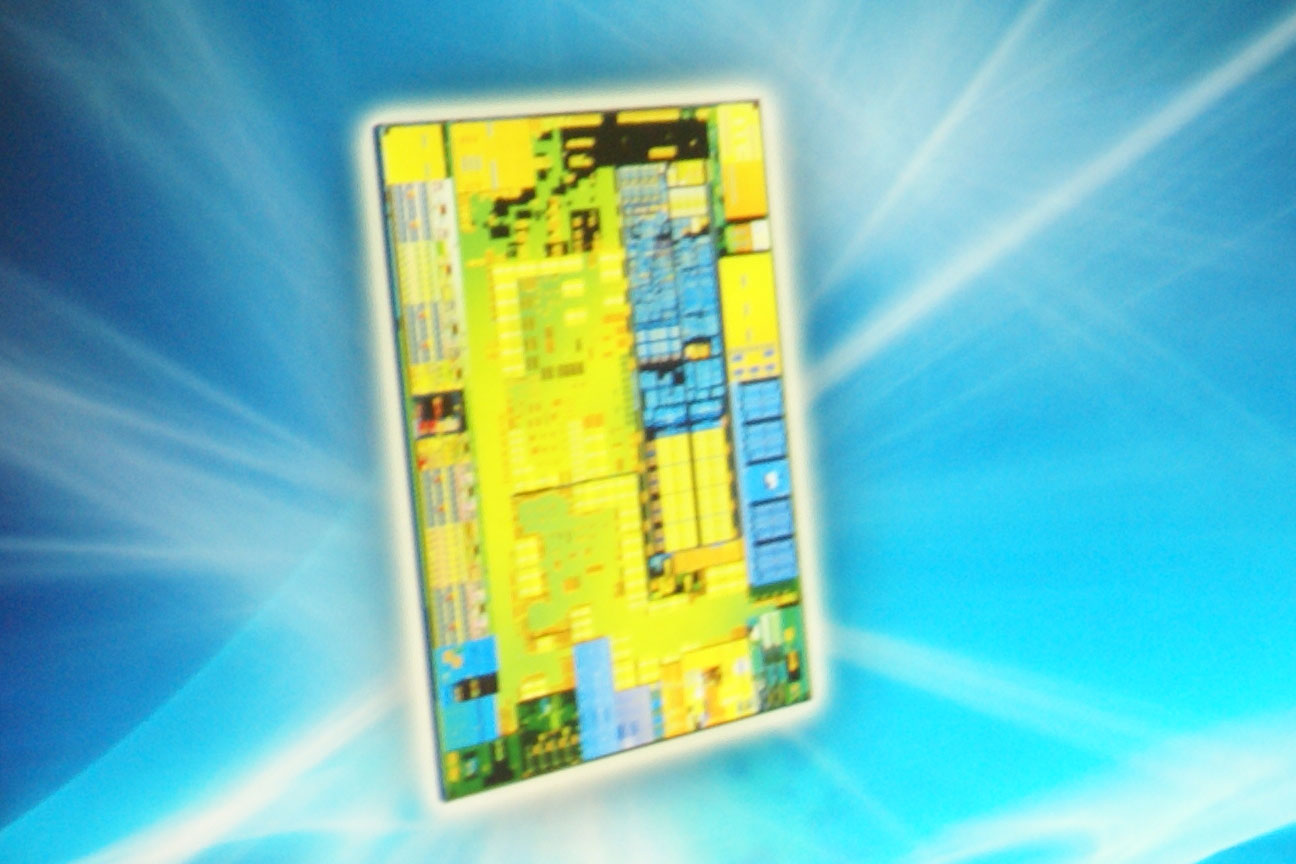Intel's new Atom chip pushes web to TV
Televisions will become the 'electronic hearth' that ties families and friends together with social networking, video conferencing and more, according to Intel.


Intel has continued its push into chips in televisions with the release of a new processor, the system on a chip (SoC) CE4100 - formerly called "Sodaville."
The follow up to last year's CE3100 was unveiled today at the Intel Developer Forum in San Francisco by general manager of the company's digital home arm, Eric Kim.
The CE4100 is the first Atom 45nm single chip SoC that Intel has delivered. It is aimed at set-top boxes, Blu-ray players and personal video recorders (PVRs), in addition to digital TVs. It's fully backward-compatible with the last generation chip.
It also lets users bring in their own HD sources, and features an integrated NAND controller as well as support for DDR2 and DDR3 memory.
What consumers want
Intel admitted that consumers don't want their TVs to turn into computers. Kim said the system needed to stay "simple and easy."
"People do not want to lose that relaxed kick back experience of television, even if you're a geek," he said.
Get the ITPro daily newsletter
Sign up today and you will receive a free copy of our Future Focus 2025 report - the leading guidance on AI, cybersecurity and other IT challenges as per 700+ senior executives
"Don't make my TV act like a PC," he added.
"Putting PC-internet directly on a TV doesn't work," he said, before adding: "Increasingly people want rich immersive and social exp on their television. [The] PC is about giving power to the individual, television is about the family and friends unifying feel, the electronic hearth."
Social networking on your telly
Despite not wanting to turn televisions into PCs, the new CE4100 will let users share favourite shows and talk over video conferencing while chilling out in the living room.
Intel displayed an Adobe Flash 10-based widget for searching for shows and saving them to watch later, which also allows users to pull in their own content.
Click here for more news from the Intel Developer Forum 2009.
Freelance journalist Nicole Kobie first started writing for ITPro in 2007, with bylines in New Scientist, Wired, PC Pro and many more.
Nicole the author of a book about the history of technology, The Long History of the Future.
-
 Asus ZenScreen Fold OLED MQ17QH review
Asus ZenScreen Fold OLED MQ17QH reviewReviews A stunning foldable 17.3in OLED display – but it's too expensive to be anything more than a thrilling tech demo
By Sasha Muller
-
 How the UK MoJ achieved secure networks for prisons and offices with Palo Alto Networks
How the UK MoJ achieved secure networks for prisons and offices with Palo Alto NetworksCase study Adopting zero trust is a necessity when your own users are trying to launch cyber attacks
By Rory Bathgate